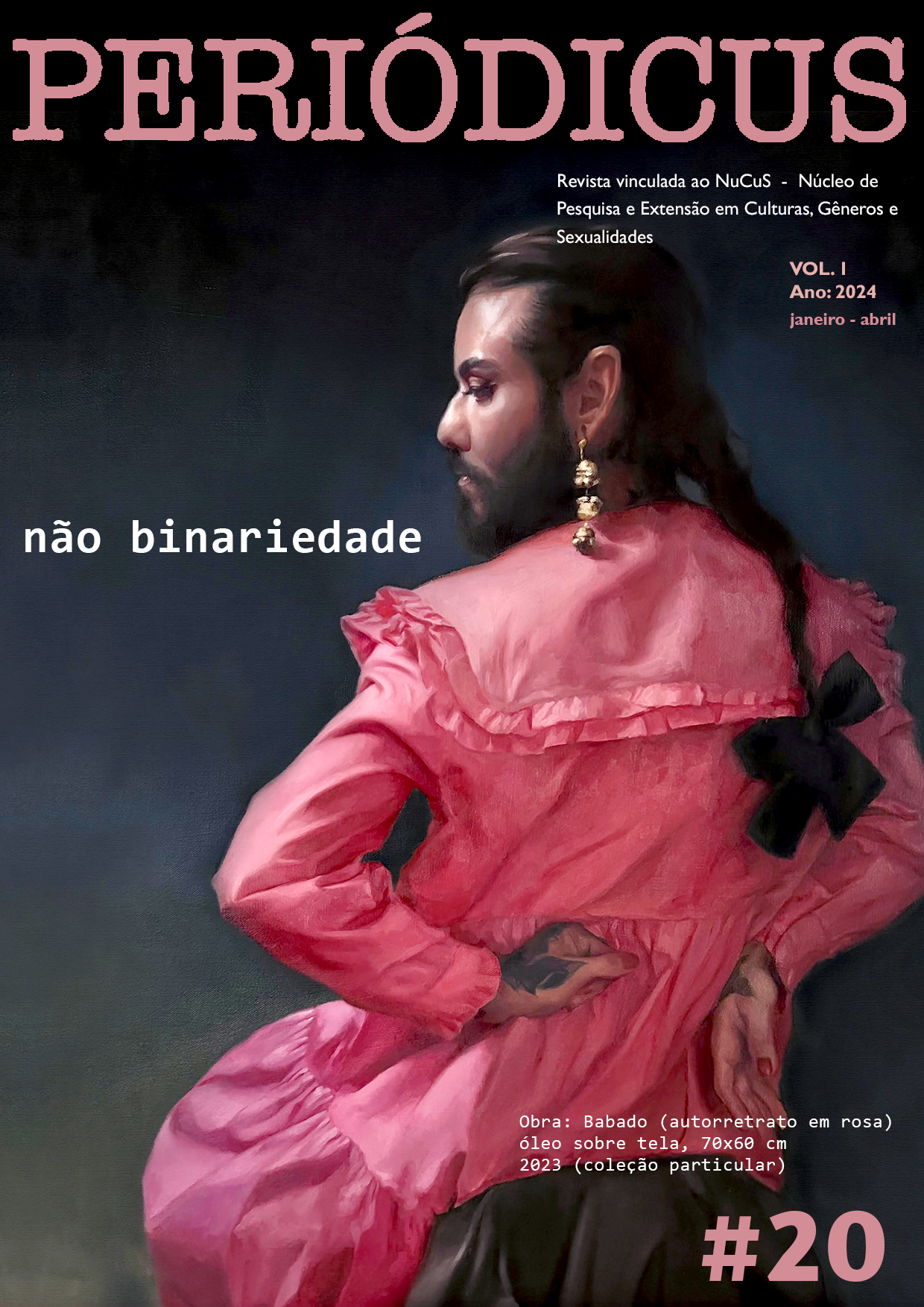Analisando argumentos antilinguagem não binária
cisnormatividade, colonialidade e capacitismo
DOI:
https://doi.org/10.9771/peri.v1i20.54804Resumo
Ao menos desde 2020, projetos de lei que têm por objetivo a proibição do uso da linguagem não binária em instituições educacionais vêm sendo apresentados por parlamentares antigênero Brasil afora. Tomando como objeto de análise as justificativas de projetos de lei para a proibição da linguagem não binária em Santa Catarina e posts de parlamentares sobre a temática, observa-se a articulação de uma gramática política antilinguagem não binária em torno de três grandes temas: “uma tentativa forçada”, “modificação da Língua Portuguesa” e “a falaciosa bandeira de democratização da linguagem”. Percebe-se, ainda, que, atrelada a esses temas, há a produção discursiva de três figuras que estariam em ameaça: a criança, a língua portuguesa e a pessoa com deficiência. Conclui-se, então, que a gramática política antilinguagem não binária tem por objetivo a instauração de um pânico moral sobre os usos dessa forma de linguagem e está fortemente ancorada na cisnormatividade, na colonialidade e no capacistimo.
Downloads
Downloads
Publicado
Como Citar
Edição
Seção
Licença
Copyright (c) 2024 Inaê Iabel Barbosa

Este trabalho está licenciado sob uma licença Creative Commons Attribution-NonCommercial 4.0 International License.
Autores que publicam nesta revista concordam com os seguintes termos:
Autores mantêm os direitos autorais e concedem à revista o direito de primeira publicação, com o trabalho simultaneamente licenciado sob Licença Creative Commons Attribution Noncommercial que permite o compartilhamento do trabalho com reconhecimento da autoria e publicação inicial nesta revista, sendo vedado o uso com fins comerciais.
Autores têm autorização para assumir contratos adicionais separadamente, para distribuição não-exclusiva da versão do trabalho publicada nesta revista (ex.: publicar em repositório institucional ou como capítulo de livro), com reconhecimento de autoria e publicação inicial nesta revista.
Autores têm permissão e são estimulados a publicar e distribuir seu trabalho online (ex.: em repositórios institucionais ou na sua página pessoal) a qualquer ponto antes ou durante o processo editorial, já que isso pode gerar alterações produtivas, bem como aumentar o impacto e a citação do trabalho publicado (Veja O Efeito do Acesso Livre).








